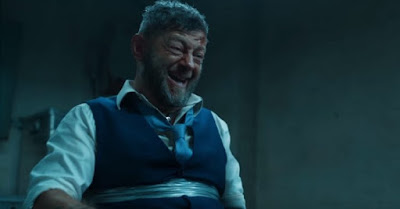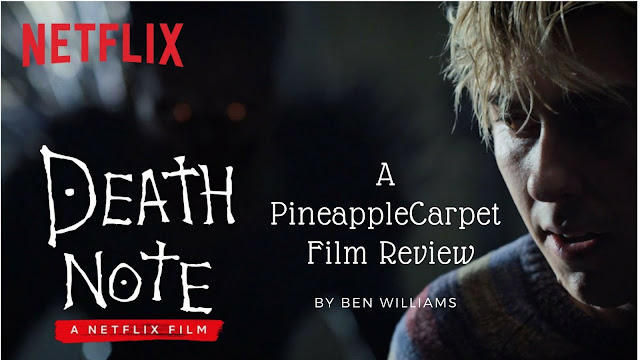Black Panther Is Great But Nowhere Near Perfect
The Circle of Life
Black Panther is shrouded in an impenetrable force field of critical acclaim across the board. The few negative reviews out there actually ended up trending on Twitter as if word against it is a blasphemous crime. Is it a perfect film? No but Black Panther is a Marvel Cinematic Universe entry that stands on own legs. It's themes and particular moments resonate with you as an individualistic cinematic experience. Whilst it does have flaws which shouldn’t be omitted from discussion, Black Panther’s a great time that’s worth your money.
Springing to mind is the characterization of the Black Panther himself, T'Challa. A week after the events of 2016's Captain America: Civil War; T'Challa, the Prince of technologically advanced Wakanda, must step up to take the place of his recently deceased father as King, whilst taking on the challenges that come with it. With a performance by Chadwick Boseman that's cemented the role as his own, T'Challa is a much deeper character compared to when we last saw him in Civil War. Evolving from the warrior out for revenge, T'Challa goes to instantly charm you with the loving person that he is when not on the warpath: a son, a brother, a friend and a leader. He makes jokes alongside his stern monologues, takes banter from his loved ones and is more of a "man of the people" type compared to what we saw two years ago.
Thankfully, it isn't a story about how a rise to power causes premature cockiness to result in a falling from grace, like we've seen so many times before. A lesson that the film throws at it's protagonist is that nobody's perfect. Even when idolizing those that came before, especially his father, T'Challa is faced with the emotional consequences of his own kindness and naivety. As more people are coming to accept stories of how everything isn't black and white, that the moral grey area is more visible than you think, Black Panther's moral ambiguity is the centre of what gives this standalone film in a cinematic universe it's own identity.
Supported by strong performances from the remainder of the star-studded cast, vital character scenes convey that much more passion when requiring that extra weight. The standout new character is Shuri (Letitia Wright), T'Challa's younger sister who is a genius with technology and has a fun back and forth with our protagonist. If Black Panther is the James Bond of the MCU like many have said, Shuri is easily the Q of it all.
Yet the biggest surprise is M'Baku (Winston Duke), the leader of the Wakanda's Mountain tribe, who has some of the best comedic scenes. Although, the Mountain Tribe are the outcasts of Wakanda, being separated from the other tribes. The reason for this is never properly explained, leaving it down to the perception they're mere brutes but then confusion is created when it's established M'Baku actually has strong moral principles matching with T'Challa's. It's not too big of a plot hole but will bug those who are looking for a fully cohesive story.
Moral grey areas being the subject is a good jump off point to go into the main antagonist. Joining Marvel's recent trend of actually making half decent villains; is the effectively memorable Killmonger, played fantastically by Michael B. Jordan. This is due to director, Ryan Coolger's ability for writing and storytelling, as well as Jordan's take on the character. A typical villain's goals can simply be on the lines of something-over-the-top evil, with the concept of the audience empathizing with them being impossible. Killmonger's goals and ideology actually make sense when looking at things from his perspective. It's just the execution that makes him evil, which is why he's getting ranked pretty high over the MCU villains so far. Coolger's background of delivering an emotional punch in his films reveals itself at a couple of key moments when they uncover Killmonger's emotional vulnerability. You're on the edge of nearly voting for him to succeed but only deterred at the final moments when you realize you understand his goal, just not the path to getting there.
Jordan's Killmonger being one of the best of Marvel's villains so far is disappointing when you notice his absence in a large portion of the film's run time. The plot seems to have a villain screen time shared between Killmonger and Klaue, wonderfully played by Andy Serkis (seen before in Avengers: Age of Ultron). It's not that the latter isn't a decent villain but Killmonger is so much better, who we see in the beginning of the film before he disappears for what feels like an hour, nearly making us forget he's even in the film.
It's is as if the original narrative was split in two, having another story placed in between before being stitched together. The two other film's in Coolger's director filmography, Fruitvale Station and Creed, are renowned for both powerful storytelling and character developments, which Black Panther holds in spades for the majority. For what seems to be a comprimise between being it's own individual film but still fitting under the Marvel filter results in a few of the action scenes being generic. Fun, yes but still generic on the same level as anything with The Rock in it. A fair bit of the Klaue arc in the midst of the film, where said standard action is, had me pining for more of the meaningful, character-heavy interactions that came before. You'll be able to imagine my silent gasp of film-loving relief when these became part of the story again. Funnily enough, this was around the time Killmonger FINALLY returned to the screen.
A split narrative's effect can be endangered further by predictability and Black Panther was no exception. The couple of plot twists that were built up in a way to shock audiences could be seen from almost the very beginning. Attempts at creating surprise and intrigue simultaneously with other characters fall slightly flat and again make you wish these revelations would rush along to the payoff.
As a testament to Ryan Coolger's ability as a director however; these negatives make the positives shine brighter. Black Panther's simultaneous take towards race, family, succession, self preservation and loss are handled beautifully. The film's best scenes are without fists flying or cgi-enhanced car chases. It's when they're just talking and you're witnessing the characters develop from these interactions. My absolute favorite scenes are those with T'Challa coming to terms with the loss of his father and having to take his mantle as king. These are so powerful with the film's gorgeous soundtrack lying underneath. There's a almost Lion King feel to it in the way it makes you relate to losing someone you love, whilst needing to move forward for those who remain, certainly bringing a tear to the eyes of some viewers. It's clear why Coolger says that creating this film has been the most personal for him thus far.
Final Thoughts
If a film could be reviewed by only a single or handful of scenes, I'd wish Black Panther would be one of them. Sadly, the whole experience has to be taken into account. The cultural significance of Black Panther, being the first major cinematic Black superhero with his own film (*cough* except for Blade *cough*) has caused it's cracks to be overlooked, although it cannot be ignored that this film is significant in that regard. Within it's absorbing story and well-fleshed out characters lies a bit of a lull through a clash of stories in it's narrative. That and as far as it's other problems go, makes Black Panther more of a theatrical diamond in the rough than the star of cinematic hope it's being made out to be. Nevertheless, Ryan Coolger's marked his stamp on the Marvel Cinematic Universe in a big and unique way. He's made it feel like one of his own films rather than the standard Marvel flavor that's drenched other standalone films in the MCU. It's worth your time, money and a blu ray purchase but it's still got nothing on Winter Solider and Civil War.
Rating: 8/10














Comments
Post a Comment